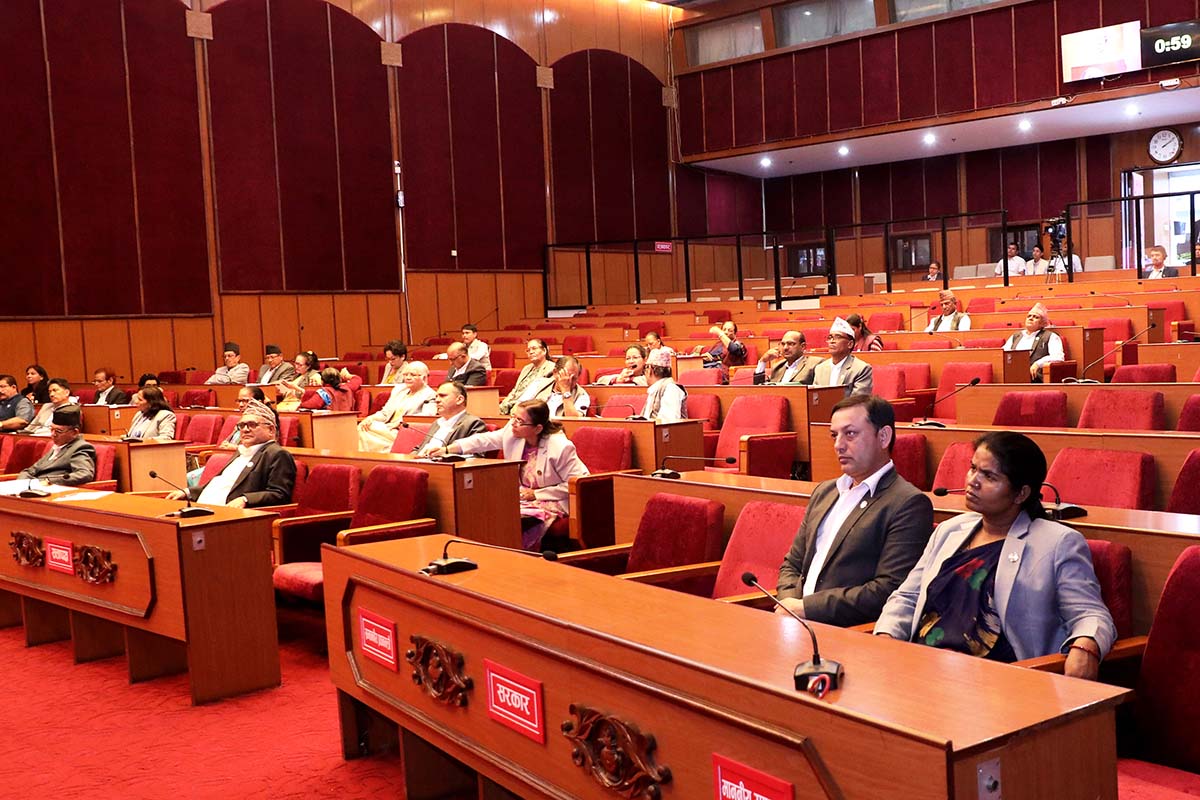
KATHMANDU: Finance Minister Barsha Man Pun has stated that the budget for the upcoming fiscal year 2024/25 is focused on production rather than distribution.
Responding to questions raised at the National Assembly (NA) meeting on Tuesday, Minister Pun explained that the budget aims to institutionalise the economic achievements gained in the past, while also addressing the country's objective needs in the context of global changes.
He argued that the budget would boost production and create more job opportunities, expressing confidence that the revenue collection target would be met through coordination.
Minister Pun informed the NA members that a green tax has been introduced and focus has been placed on solar and renewable energy. He argued that the VAT on imports of onions, potatoes, and apples has been replaced to encourage domestic production.
Target of 6% economic growth rate possible
Finance Minister Pun stated that the budget for the upcoming fiscal year 2024/25 is balanced, rather than ambitious, when compared to the size of previous fiscal years' budgets, the status of public finance, and the size of the gross domestic product (GDP).
He said the budget has boosted the morale of the private sector, with less allocated for current expenditure in the upcoming fiscal year compared to the current one, while the allocation for capital expenditure is higher.
Minister Pun expressed confidence that capital expenditure will increase across all three tiers of government and more foreign investment will be mobilised in line with commitments made at the recent Nepal Investment Summit.
With the effective implementation of the policies and programmes outlined in the budget, he asserted that the target of a 6% economic growth rate is achievable and the goals of the 16th periodic plan will also be gradually met.
Furthermore, Minister Pun stated that top priority has been given to the healthcare and education sectors, with an additional Rs 3 billion and Rs 6 billion allocated to these sectors respectively, compared to the current fiscal year.
He argued that the impacts of climate change have been prioritised, and climate adaptation and resilience programmes will be run. The impacts on affected communities will be addressed in an integrated and balanced manner through the President's Climate Change Management Programme.
Minister Pun also stated that the use of public debt is arranged in the production sector and the ratio of such debt to the country's GDP is less than 40%, thereby contributing to the country's prosperity.
According to the Finance Minister, the budget is expected to create employment within the country and generate more jobs through increased foreign direct investment and the mobilisation of private sector investment.
He also shared that revenue mobilisation and its estimation will be made more realistic, and pledged to implement the report of the high-level recommendation committee on tax system reforms.
The general debate on the budget was completed in the NA meeting on Tuesday after three days of discussion.
The next meeting of the NA is scheduled for 1:15 pm on June 10.







-1732784041.jpg)
